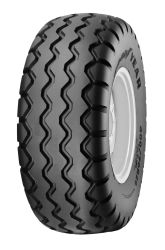I-1 / FI Rib / Highway Implement Farm Tires
-
 2 AVAILABLE IN GALLAGHER INVENTORY 25+ AVAILABLE IN SUPPLIER WAREHOUSE INVENTORYMore Info...More InformationAdditional Info-Bearing-Bolt Pattern-Box Quantity-BrandGOODYEARCenter Bore in/mm-ConstructionRADIALCountry of OriginUSADiameter380Finish-Hub Length-Industry CodeI1Load Index150Load/Speed Index150BMachine Fitment/Application-Max Load Capacity (Lbs)7400Max PSI73Mounted Diameter (Inch)33.15Pattern/PositionI1Ply/Load Index/Star Rating150A8Ratio55Rim Diameter16.5Rim Size16.5X12Rim Width12Rolling Circumference99Section Width13.7Size380/55R-16.5Speed Rating/Speed (MPH)B/30Static Loaded Radius (inch)14.8StyleFS 24 RADIAL IMPLEMENTSurface / Terrain-Tread Depth (32nds)11/32Tread Width-Tube Type / TubelessTUBELESSTypeI1Valve-Weight (Lbs.)91.000000Wheel Back Spacing in/mm-Wheel Front Spacing in/mm-Wheel Offset in/mm-
2 AVAILABLE IN GALLAGHER INVENTORY 25+ AVAILABLE IN SUPPLIER WAREHOUSE INVENTORYMore Info...More InformationAdditional Info-Bearing-Bolt Pattern-Box Quantity-BrandGOODYEARCenter Bore in/mm-ConstructionRADIALCountry of OriginUSADiameter380Finish-Hub Length-Industry CodeI1Load Index150Load/Speed Index150BMachine Fitment/Application-Max Load Capacity (Lbs)7400Max PSI73Mounted Diameter (Inch)33.15Pattern/PositionI1Ply/Load Index/Star Rating150A8Ratio55Rim Diameter16.5Rim Size16.5X12Rim Width12Rolling Circumference99Section Width13.7Size380/55R-16.5Speed Rating/Speed (MPH)B/30Static Loaded Radius (inch)14.8StyleFS 24 RADIAL IMPLEMENTSurface / Terrain-Tread Depth (32nds)11/32Tread Width-Tube Type / TubelessTUBELESSTypeI1Valve-Weight (Lbs.)91.000000Wheel Back Spacing in/mm-Wheel Front Spacing in/mm-Wheel Offset in/mm-
What are I1 or FI (Flotation Implement) tires?
I1 or FI (Flotation Implement) tires are a category of agricultural tires designed primarily for free-rolling wheels on implements and trailers. Their design emphasizes minimal soil compaction, making them ideal for tasks where preserving soil structure is crucial. Here's a breakdown of their features and primary uses:
Flotation Implement Tire Design and Features:
Smooth Tread Pattern:
I1/FI tires typically have a smooth, wide tread pattern. This design ensures a large contact area with the ground, distributing weight evenly and minimizing soil compaction.Wide Profile:
These tires are often wider than standard tractor tires, further aiding in reducing ground pressure and soil compaction.Reinforced Sidewalls:
To handle the weight of heavy implements or loaded trailers, I1/FI tires often come with reinforced sidewalls.
I1 Tire Applications and Uses:
Agricultural Implements:
I1/FI tires are commonly found on towed farm implements like balers, seeders, spreaders, and cultivators. Their design ensures that these implements don't compact the soil as they move across the field.Farm Trailers:
Trailers used for hauling grain, hay, or other agricultural products often use I1/FI tires to minimize the impact on fields, especially when loaded.Specialized Ag Equipment:
Some specialized agricultural equipment, like center pivot irrigation systems, might use I1/FI tires to reduce the impact on the fields they operate on.Towed Construction Equipment:
In some cases, construction equipment that's towed across softer terrains might use I1/FI tires to prevent ruts or excessive soil disturbance.
Flotation implement tire ribs:
While many of these tires feature a smooth tread pattern to distribute weight evenly over a large area, there are also ribbed versions available. The number of ribs can vary based on the specific design and intended use of the tire.
- Smooth Tread: Many FI tires have a completely smooth tread to maximize the contact area and distribute weight as evenly as possible.
- Single Rib: Some flotation tires might have a single, central rib to aid in directionality, especially for towed implements.
- Multiple Ribs: It's less common, but some FI tires can have multiple ribs, typically 3 to 5, to provide a balance between flotation and directionality. These ribs are usually more shallow and spread out compared to the ribs on front tractor tires (like F2 tires).
The specific number of ribs and the design of a flotation implement tire will depend on the manufacturer's design and the intended application. When choosing a flotation tire, it's essential to consider the specific needs of the equipment and the conditions in which it will operate.
In summary, I1 or FI tires are designed for free-rolling wheels on towed agricultural implements and trailers. Their primary advantage is their ability to minimize soil compaction, preserving the soil's structure and health.
